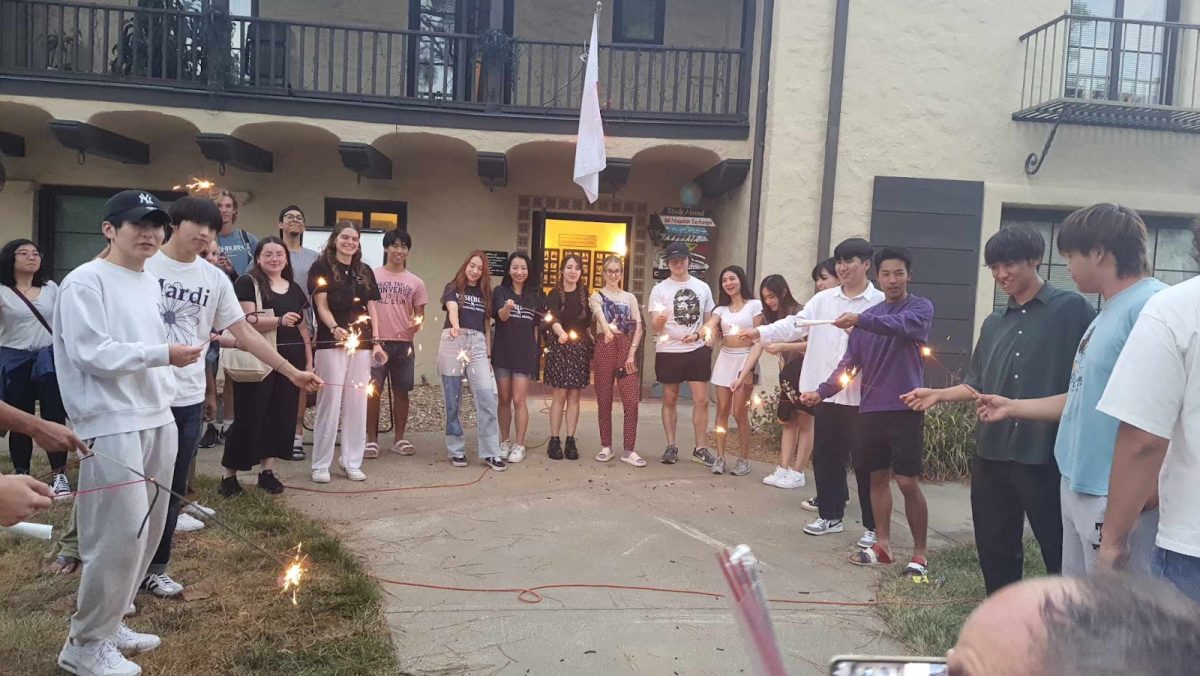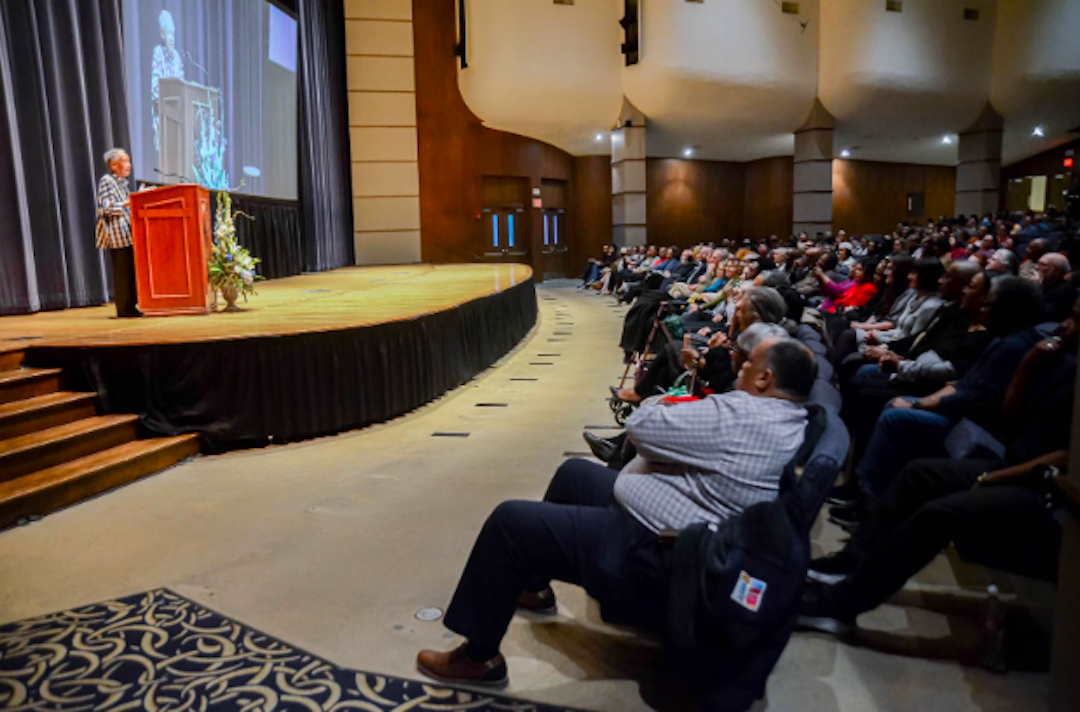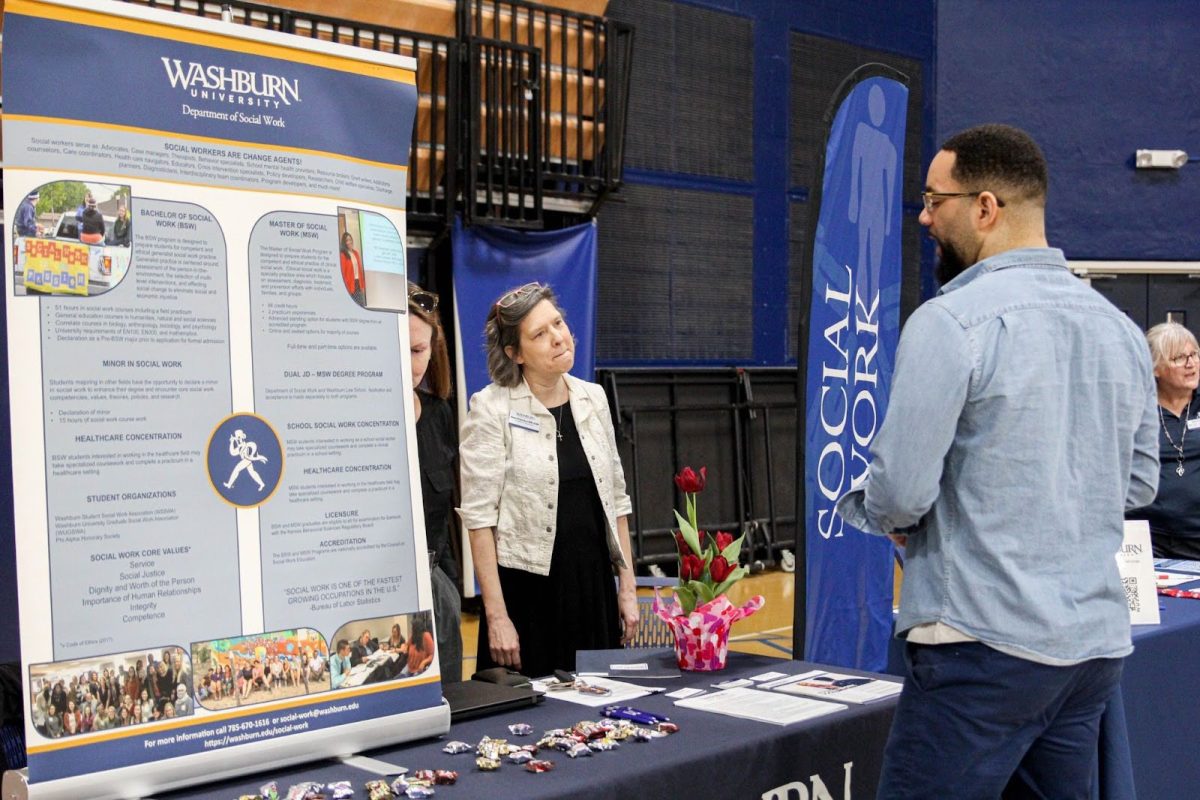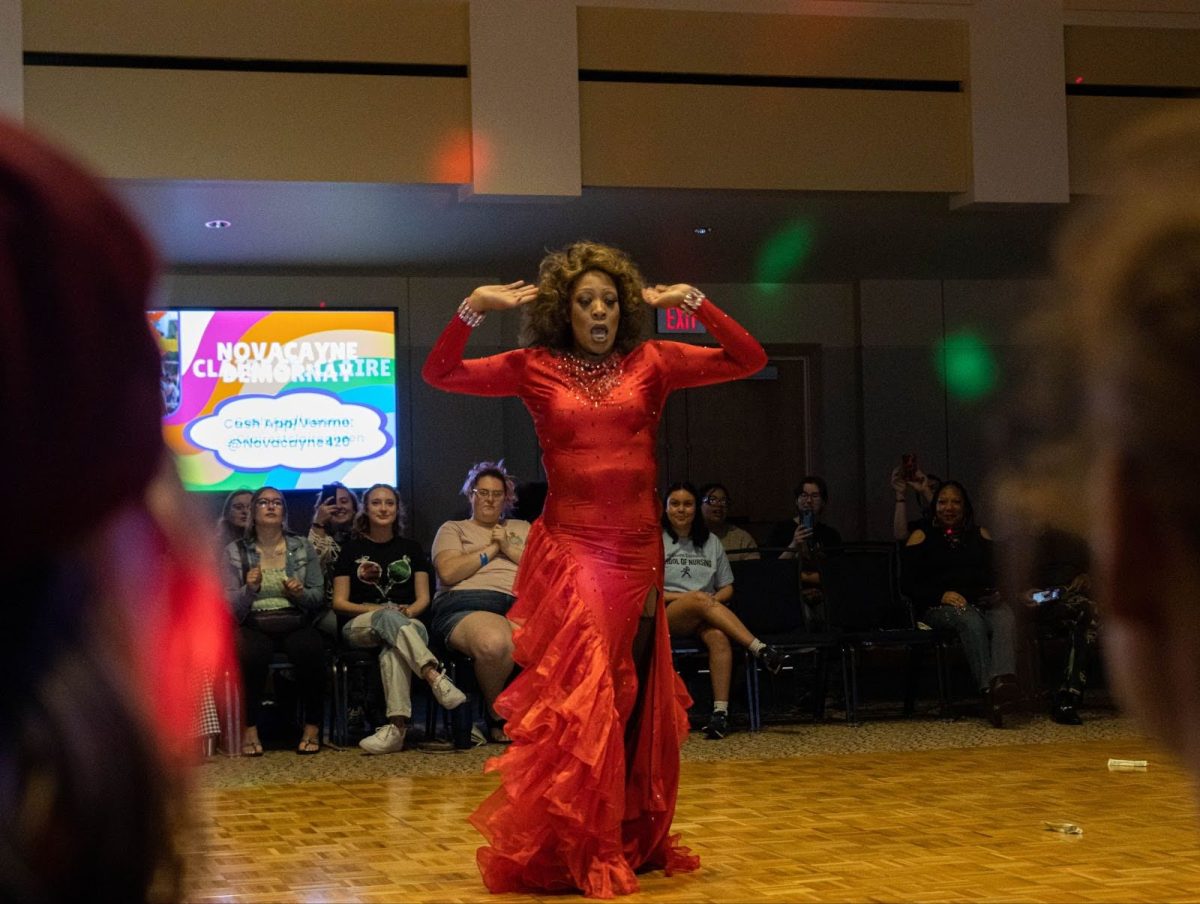On Thursday, Sept. 21, Washburn University International Club hosted the Hanabi festival. This popular festival is celebrated in Japan during the summer on a full moon day. The word ‘hana’ means flower and ‘bi’ means firework which can be interpreted as ‘’fire flower’.’ It is also known as the festival of fireworks which is a blend of cultural, traditional and seasonal celebrations where people from different communities gather together and enjoy the festival.
The festival is believed to have started from the Edo period from around the 17th century. Hanabi festival has been an important part of Japanese festivals that symbolizes joy, unity, nature’s ephemeral existence and spiritual beauty.
“In Japan Hanabi is like a tradition that has been celebrated from year to year and during this time all the people gather and have fun. It is hosted on a large scale,” said Hinata Isobe, finance major from Japan. “We also prepare Japanese flags during this festival and hang them around our house.”
To begin the festival everyone gathered inside the International House for fellowship, food, games and enjoyment. The lunch included Karaage (fried chicken), soft drinks, cotton candy and Japanese sweets. There were some games like “Connect Four” and “Simon” that were played by the students.
After lunch, students went outside the International House for some cotton candy and sweets. Then, when it started getting darker, students started lighting fireworks along with enjoying the music which created a visually stunning night sky.g. Students were given small sparklers, each helping one another light their fuses before the night ended. Students from other countries also enjoyed the festival.
Hanabi is a way to preserve and showcase Japan’s rich tradition of firework artistry.
“It’s important to attend on-campus events like this because it is a good way to share culture and an opportunity to talk to them and bond with them and I enjoy attending these on-campus events,” said Gunes Yucesan, a freshman computer science major from Turkey. “As an international student, I love learning about new cultures and exploring new things that I had not known before.’’
During the festival people wore traditional Japanese dresses like summer kimono and ate food such as Yakisoba (noodles), kakigori (a flavored shaved ice dessert), sweets and karaage, one of the most liked foods during the festival.
The date of the Hanabi festival varies from year to year because it is not celebrated on a specific date. People check the local calendar to plan this event.
For the remainder of the festival, all the students gathered in front of the International House and started lighting fireworks, taking pictures and having soft drinks. Due to the rain, everyone gathered inside the International House and watched the fireworks displayed on the TV that happens every year in Japan.
Hanabi is also a way to preserve and showcase Japan’s rich tradition of fireworks artistry.
“Festivals are really important to us, so we celebrate different festivals at Washburn so that other students don’t feel homesick or miss their family during the festival and it is a great opportunity to get to know the culture of people belonging to different countries,” said Andy Vogel coordinator Recruitment and Retention for International Programs. “We will be hosting similar events in the upcoming days.”
The International Club has several events planned for this semester, such as a Brazilian Fest, Dashain, Tihar and Holi, each one representing the unique culture and tradition of different groups of international students on campus.
Visit the International Club’s Instagram here to keep up with their latest events.
Edited by Larissa Morgan and Aja Carter















